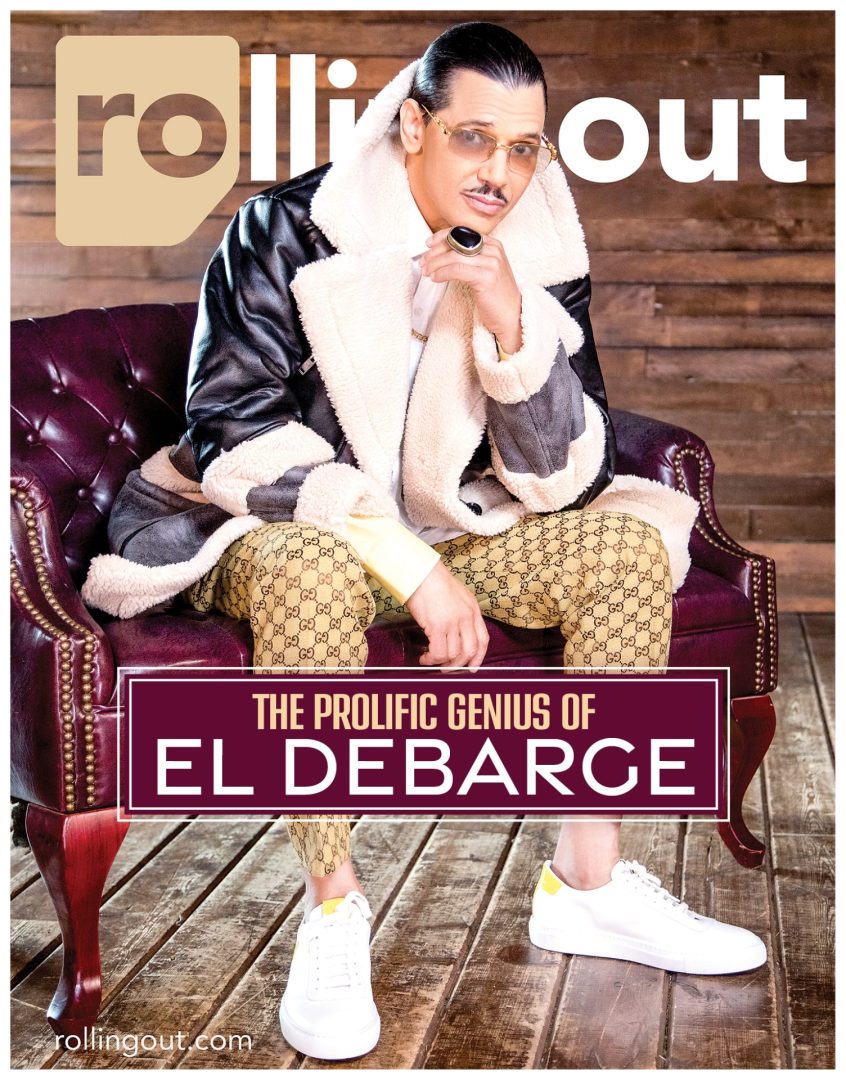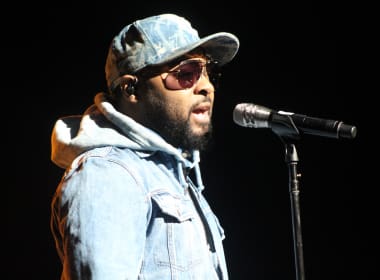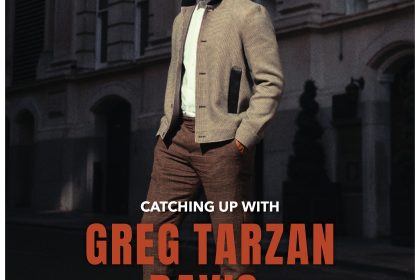A muffled voice from behind the double doors announced that Musiq was in the building. I sat up a little bit straighter. I anxiously anticipated my interview with the famed singer-songwriter who stopped by the rolling out studio in Atlanta. He had a show the night before in another state and was scheduled to perform at the Fox Theater after our meeting.
Musiq had become a part of The Intimacy Tour inadvertently. R&B singers El DeBarge and Ledisi were supposed to open the show for headliner Kem. And just as he put on his game face as a good sport by coming in for the interview, although he was admittedly tired, he stepped in to replace DeBarge when the troubled ‘80s crooner checked himself back into rehab.
Since Musiq had a show to do in just a few hours, I didn’t hesitate to get right to the point and to the essence of the man, his music and his message.
You have attained an extraordinary level of success around the world in your 10 years. Your fans imagine what your life is like, but we want to hear it from you. What is Musiq’s day really like?
While on tour a typical day would be [pulling] into the city anywhere between 9 a.m. and [noon], sometimes later. We try to get the band to the venue as soon as possible so that they can get all the production together so when it comes time for sound check — let’s say between 4 and 5 o’clock — then I would do sound check. I probably have to do radio. I probably have to go do an interview somewhere with a magazine or whatever the case may be. At some point, I would try to get something to eat. After sound check, I would probably chill at the venue or maybe run back to the hotel or maybe do some other odds and ends if I need something.
We know your performances are always top-notch and probably very exhausting. What do you like to do to unwind after a show?
Depending on the day, it could be anywhere between 7:55 and 8:25 p.m., when I’m on stage. If I’m really dog-tired [after my set], I’d probably go straight back to the hotel afterward, but, if not, I will stick around and catch the rest of the show. If it’s early enough, I would go get something to eat again. Then go to sleep, and do it all over again [the next day]. But then sometimes people want me to do an after-party type thing, so it all depends. It changes. But it’s very, very active, and it’s always moving.
With your hectic schedule, how do you take care of yourself?
The two things I always have to fight for are rest and food. … I’m just grateful that I have the energy by the end of the day to do a performance.”
You are said to be one of the Philly pioneers of the neo-soul movement. Did you create that vibe?
There’s a lot of people — Jill Scott, Bilal, Kindred the Family Soul, Floetry, that actually came from the U.K. but we definitely claim them as Philadelphians, and, of course, The Roots. There’s a whole bunch of different people that came from Philadelphia that contributed to that vibe.
… How people responded to it is what dictated what it became.
How do you create your music? How do you do what you do?
My creative process is a “collective process.” It’s not just me in the studio making songs, and it comes out. It’s the label’s people. They provide their input, their feedback and influence. I correspond with random people under random circumstances about what they feel I should do and how they feel about my musical expression and the lane that I’m in and the type of music I put out.
I receive information even more so now through the technology of Facebook and Twitter. … So, I’m taking all these things in consideration when I’m in a booth or when I’m in a studio or when I’m promoting a project after it’s out to get people to understand the contents of the project.
For whom do you create your music? Who are your loyal fans?
I’m not just feeding one demographic of people. I think that’s been a misconception when it comes to me and the music that I put forth. People just label it as one thing so they automatically expect it to be one thing, but there’s a whole lot of things going on my album and my previous ones as well. I’m trying to push it so that I can have more for more people. I don’t want to just do what people classify as “neo-soul” ‘cause everybody don’t listen to neo-soul. I want to make music for everybody. I’m always trying to incorporate new elements into what I do.
Tell us about your new album that dropped in May, MusiqInTheMagiq.
I’m just honored to still be credible to people enough to invest in what I do and care about what I do. The first single is called “Anything,” featuring Swizz Beatz. I think that it’s a departure to some people from what they’re used to getting from me … I don’t want you to automatically assume that you know what it’s going to be. You never know how I’m going to present myself. The only thing that I want you to know for a certainty is that whatever it is, it’s going to be quality.
From the Soulchild …
On His Style:
“I just try to keep it fresh. Even though I’m really into fashion, I’m into fashion as a means of creative expression. I dress myself according to my personal creative expression. … I try to keep it comfortable. I try to keep it simple.”
On Self-Tweeting
“Yeah, I tweet. There are parameters around that, but I do get personal as far as communicating with people here and there, retweeting comments and things like that. I answer people back through my @ mentions, but I don’t get too involved with it. I learned that back with MySpace. If you respond a certain way because you’re a celebrity, then they say, ‘Oh, he’s trippin’, so I don’t really get into it like that.”
On His Childhood:
“I was very ‘untypical.’ Very ‘untraditional.’ Very unconservative. Very ‘un’ everything. For instance, I thought everybody could sing. That’s just the way I viewed life and the world. If I could do it, everybody could do it. So, it created an expectation and whenever I would meet somebody I would say, ‘Sing me something,’ and they would look at me like, ‘You’re nuts.’ ”
On Love:
“I felt that everyone had the same sentiments when it came to love that I did. I felt like if you really cared for somebody then that was it. It never occurred to me that people could lie about the way they felt about you. I had to learn that the hard way.”
On Negative Feedback:
“I don’t really take it in as far as the negative things. I’m the kinda person, if someone is saying something negative about me, I’m going to investigate it to see if there’s any truth to it because I can only see myself the way I see myself. Other people view you differently. So, if somebody says something that I don’t really like to hear, but it’s true, then it’s true. If I don’t like it, then I should change it. If it’s not true, then it don’t go nowhere, and I just leave it at that.”
What else do you want fans and readers to know?
I’m still in the learning process. I know that I don’t know everything, and there are people around me who do know things. So, I want to incorporate what they know because it’s only going to benefit, not only me, but whomever I’m trying to serve. If I’m attempting to serve a mass audience of people, I know that I can’t come up with everything, and what I do come up with ain’t always going to be right. So, I should leave that room for outside influence [so] I can have that much more for everyone out there.
The fact that I get to do what I do — make music and perform and have a positive effect on people through music — that’s an awesome thing. Beyond all the credits and awards and all those things, those things are awesome as well, but what really matters to me is what the people think.













